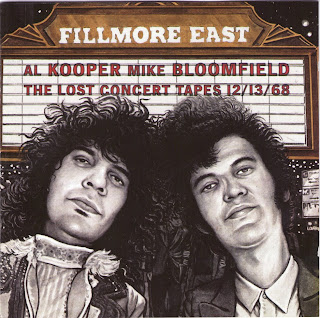“Where have I gone, where have I gone?” pondered Terry Kirkman on the haunting opening track to The Association’s 1969 long-player. Though the group’s fifth album, it was simply titled The Association, signifying an artistic rebirth. Gone were the session players and ornate Bones Howe production that marked their previous album, 1968’s Birthday. Taking the production reins themselves in tandem with John Boylan, The Association – Kirkman, Russ Giguere, Brian Cole, Jim Yester, Larry Ramos, Ted Bluechel., Jr. and the just-returned Jules Alexander – created one of their most beguilingly eclectic collections. The Association, also known as “The Stonehenge album” for its spacey cover, didn’t contain any hit singles. But it showed off the group’s trademark harmonies in gleaming form as each man’s songwriting continued to grow in maturity.
The Association addressed the heady, rapidly-changing times with the very first song as Kirkman pondered over an ethereal chorale, “Oh, it’s a hard way down to the time I raised my hand and swore I’d gladly die for my God and Uncle Sam/There was so much I didn’t know, and what I know, I didn’t understand/Look at me, look at me/Where have I gone, where I have gone?” But soon, Kirkman turned his questioning outward, too, with “Look at Me, Look at You.” The voices were familiar but the accompaniment, flecked with Doug Dillard’s banjo, acknowledged country-rock.
Jim Yester leaned in that direction, too, with “What Were the Words.” This look back from relationship’s end was originally written for The Dillards, and incorporates twangy instrumentation alongside those lush voices. Jules Alexander wrote his own country-rock song with the reflective “Dubuque Blues.” This was, doubtless, an earthier Association, although folk influences had been a major component of the band since their earliest days. On The Association, the multi-layered vocals hadn’t lost the sheer and exhilarating beauty of “Everything That Touches You” or “Cherish,” but frequently hinted at a darker place.
Even the love songs took on a more subtle air. Alexander’s “Love Affair,” yearningly sung by Yester, paints a picture of “kids to the world of the old” with “dreams that we’re living [which] they will never know…you in your Levis and I in my hair…” The imagery is spare yet potent, and very much of a window into the time though its author opines in reissue producer Steve Stanley’s comprehensive new liner notes that it “was about a woman I was going with at the time…nothing more than that, really.” Bluechel co-wrote the ambitious “The Nest,” juxtaposing downbeat solo verses (“Without love, home’s an empty house/And you might be the one who’s left within it”) with a more optimistic group-sung chorus in which the famed sunshine pop purveyors were at least hinting at a ray of sunshine.
The most commercial track on The Association was producer Boylan’s “Yes I Will.” Warner Bros. correctly selected the track for single release, but it couldn’t rise above a disappointing No. 120 on the pop chart. Still, it’s one of the band’s stronger rock-inflected songs, packing a simple yet powerful punch, even if it feels somewhat out of place on this more subtly reflective set. “Goodbye Forever,” written by Kirkman, Alexander and Rita Martinson, was originally submitted as a title song to the 1969 film Goodbye Columbus, but was rejected in favor of Jim Yester’s stab at a title song for the movie. It was retitled for The Association’s recording, and boasts a catchy melody if rather silly lyrics playing on the film’s then-risqué, hip and contemporary themes: “Not just another pretty bottom/But a genuine blue boobie/Not just another pretty bottom/But a genuine cheap groovy…”
Larry Ramos and Tony Ortega’s frenetic soul rocker, “Are You Ready,” has a tough guitar riff and some horns arranged by Bones Howe’s frequent collaborator Bob Alcivar. Brian Cole and Jules Alexander’s “I Am Up for Europe” (“…or any other place where I don’t speak the language or recognize a face”) emphasizes heavy guitars to a restless and searching lyric espousing a “gentle revolution.” Russ Giguere’s only songwriting contribution is the jokey “Broccoli,” about, well, broccoli. Kirkman closed out the album on a suitably poetic note, though, with “Boy on the Mountain,” co-written with arranger Richard Thompson (not of Fairport Convention fame).
by Joe Marchese
Tracks
1. Look At Me, Look At You (T. Kirkman)
2. Yes, I Will (J. Boylan)
3. Love Affair (J. Alexander)
4. The Nest (T. Bluechel, Jr., S. Carmel)
5. What Were The Words (J. Yester)
6. Are You Ready (L. Ramos, Jr., T. Ortega)
7. Dubuque Blues (J. Alexander)
8. Under Branches (J. Alexander, S. Carmel)
9. I Am Up For Europe (B. Cole, J. Alexander)
10. Broccoli (R. Giguere)
11. Goodbye Forever (T. Kirkman, J. Alexander, R. Martinson)
12. Boy On The Mountain (T. Kirkman, R. Thompson)
13. Just About The Same (Stereo 45) (R. Edgar, M. Fennelly, L. Mallory, D. Rhodes, J. Stec)
14. Six Man Band (Mono 45) (T. Kirkman)
15. Enter The Young (Withdrawn 1968 45) (T. Kirkman)
16. Yes, I Will (Mono 45) (J. Boylan)
17. Are You Ready (Mono 45) (L. Ramos, Jr., T. Ortega)
18. Dubuque Blues (Mono 45) (J. Alexander)
19. Under Branches (Mono 45) (J. Alexander, S. Carmel)
20. I Am Up For Europe (Mono 45) (B. Cole, J. Alexander)
21. Look At Me, Look At You (Mono Mix) (T. Kirkman)
22. Boy On The Mountain (Mono Mix) (T. Kirkman, R. Thompson)
The Original Stereo Album 1-12
Bonus Tracks 13-22
The Association
*Russ Giguere - Vocals, Guitar
*Brian Cole - Vocals, Bass
*Terry Kirkman - Vocals, Brass, Woodwinds
*Jim Yester - Vocals, Guitar, Keyboards
*Jules Alexander - Vocals, Guitar
*Larry Ramos, Jr. - Vocals, Bass, Guitar
*Ted Bluechel Jr - Vocals, Drums
Free Text



























